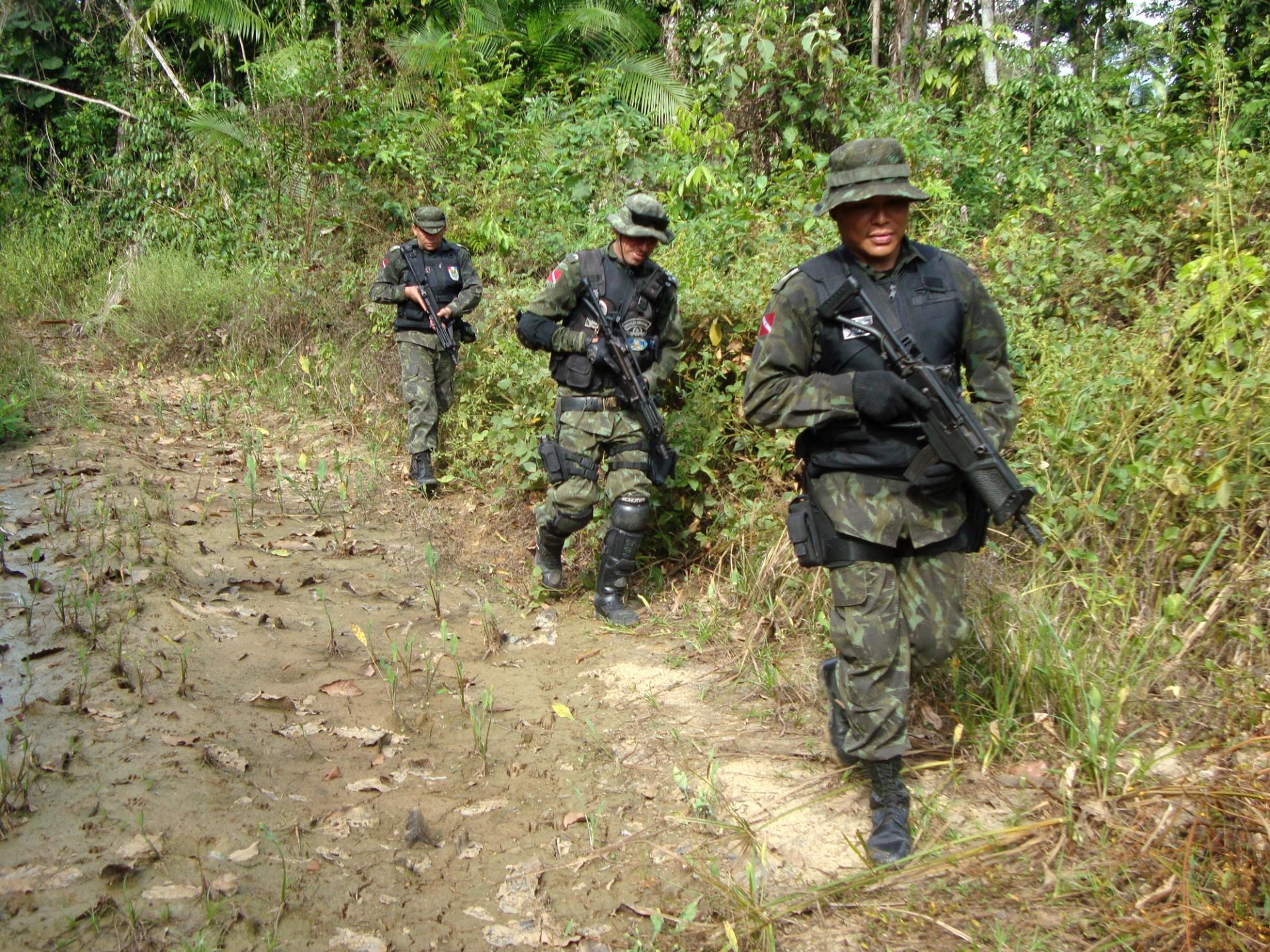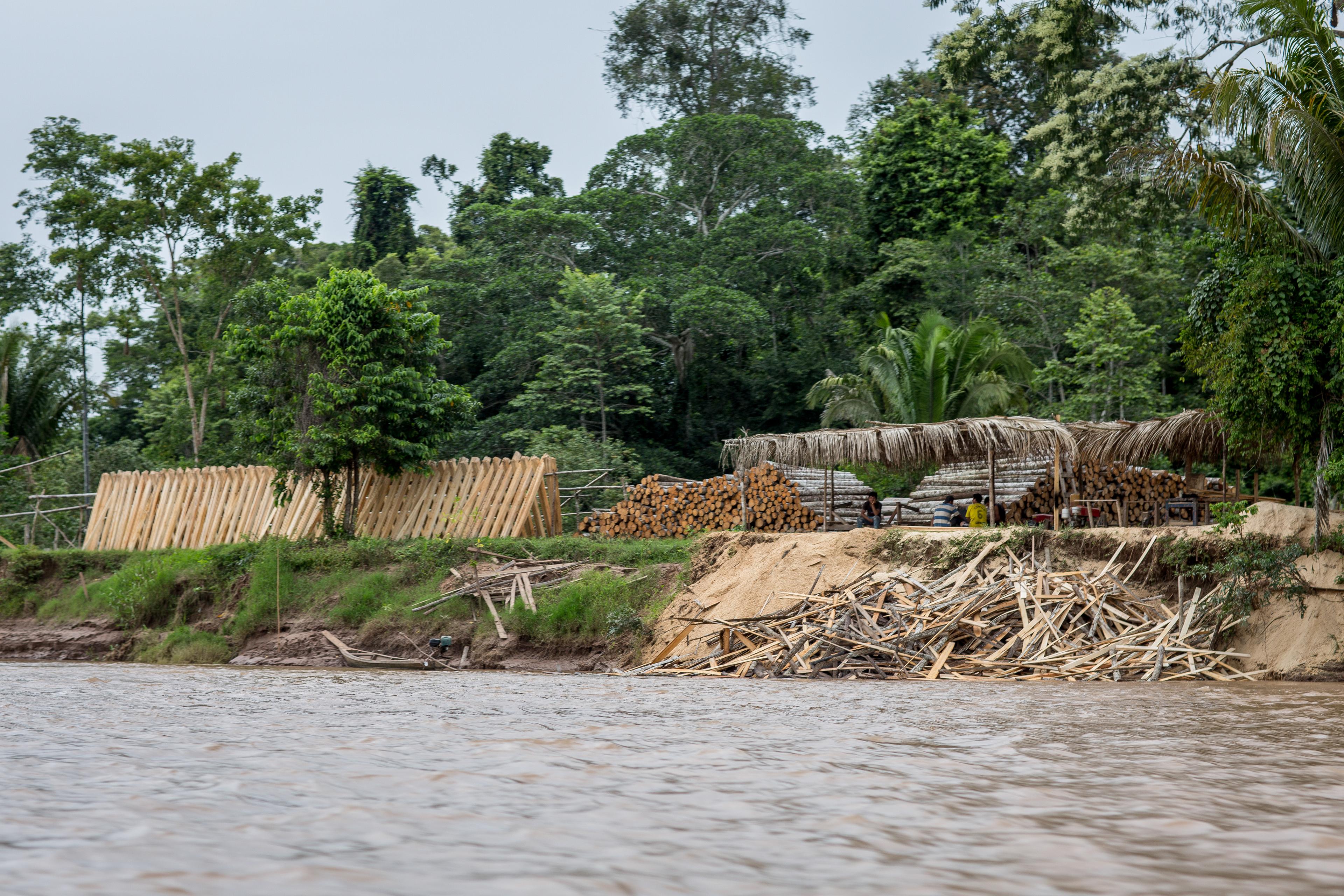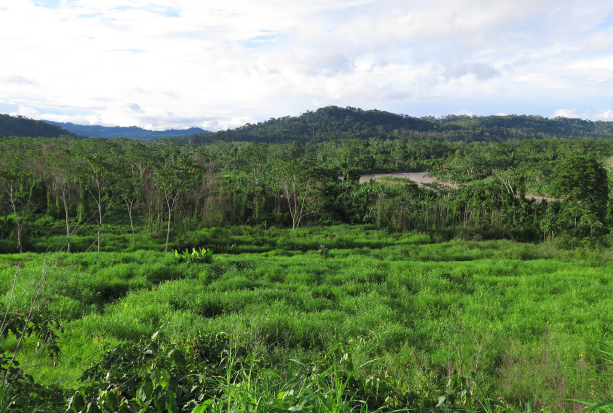Blog
Tackling police corruption in the Brazilian Amazon is a path to addressing illegal logging and mining

Corruption in Brazil facilitates illicit logging and mining activities across the Amazon rainforest. However, corruption extends beyond the fraud, embezzlement, and laundering schemes frequently identified in the mainstream media.
More subtle, everyday forms of corruption – committed by police officers who are off-duty or moonlighting in informal security work – help to accelerate the destruction of the Amazon. They collaborate with illegal loggers or miners to collect and pay bribes, extort local businesses, quash resistance from environmental defenders, and coerce or co-opt citizens into informal work.
Their activities may also extend to higher levels, with state intelligence systems allegedly being used for political leverage, negotiating immunity, and making decisions about how best to launder and direct illicit commodities and capital (such activities have also been documented in police forces in other parts of Brazil).
Brokerage and police corruption
A new research project is underway, looking at the little-studied role of corrupt police in opening access to resources in remote forest frontiers. Two lines of thinking inspired the project. First, although anti-corruption practitioners recognise the importance of their work in the Amazon as a means of tackling the climate crisis, much of the focus, so far, has been on the administrative and political dimensions of corruption in federal institutions. While important studies on police transparency are becoming part of the debate, there is much more scope to understand subnational corruption’s role in facilitating deforestation and to equip practitioners with the evidence and ideas to tackle this part of the corruption ecosystem.
The second is that literature on police corruption tends to prioritise rational-criminal explanations, which can limit policy intervention design. A research agenda on the brokerage roles of police and military actors engaging in illicit and corrupt activities in frontier regions opens new lines of thinking. It shows how these actors are embedded within – and mediate between – the pressures, demands and interests of states, markets, and communities. In addition to rational self-interest, research on police militias in Rio de Janeiro, paramilitaries in Colombia, and army militias in Myanmar suggests corrupt activities may also be motivated by claims over sovereignty, territory, community survival, and the desire to determine one’s own future and development.
This research shows that formal governance of remote frontier regions by legal actors is often undermined by underfunded state budgets. This can lead to fragmented and hybrid institutions. Police actors with formal, legal roles as public authorities often depend on informal, illicit, and corrupt practices to finance their activities and fulfil local governance roles. Rational-criminal motivations may be part of the story. But the full picture is often more complex.
Adapting anti-corruption thinking to the frontier
This thinking complements current anti-corruption research by the Basel Institute of Governance, which emphasises the networked corruption characteristics of informality. It also links with U4’s work with PUCP Lima on informal power arrangements associated with illegal logging, as well as the complexities arising from competing interests and politics in forest frontiers. Moreover, it complements anti-corruption strategies emerging from the Anti-Corruption Evidence consortium, which suggest that conventional anti-corruption measures based solely on transparency and accountability are rarely sufficient. This is because local actors may lack the power, capabilities, and interests required to hold corrupt individuals accountable – particularly in contexts where the local political economy relies on rents from corruption as one of the few viable livelihood strategies available to locals.
By bringing brokerage and anti-corruption ideas together, links between the precarious conditions of daily life in remote Amazon frontiers and corruption may become more visible. Research may also show how the effects of conventional anti-corruption measures – such as transparency, citizen-led accountability, and dismantling or eradicating corruption networks – may have destabilising effects for local economic structures. They may provoke social conflict, inadvertently shift corruption to different sectors of the economy, or encourage further deforestation as individuals seek alternative income sources. Conventional anti-corruption measures enacted in frontier regions may exacerbate corruption rather than reduce it.
Overemphasising enforcement and punishment may also backfire. For example, external security units, introduced to an area to clamp down on corruption, may become integrated into local networks and demand a share of corruption rents. Or detection and punishment may be politically directed towards one group over another, resulting in consolidating and strengthening power in the hands of a few favourable allies, inadvertently facilitating the spread of corruption to different parts of the state system.
Policy design and frontier life
There are at least three areas in which policy improvements should be explored:
- Given the difficulties of accessing evidence on police corruption, policymakers should engage in collaborative intervention-design processes. This will allow them to gain insights into the root causes, power dynamics, and contextual factors driving corruption to inform targeted policies and intervention design. These insights might show how frontier governance structures have depended, at least partially, on illicit practices. Policymakers may be able to design policies that take advantage of the influential brokerage roles of corrupt police (if there is a way of taming their abuses of power). This can simultaneously deal with the short-term issues and, over the long term, guide local economies towards legality, thereby improving state governance and strengthening the rule of law.
- Given the complexities of coordinating policies involving multiple states and levels of government, anti-corruption policymakers should prioritise strengthening multi-level governance mechanisms. This will help to overcome the complexities of policy coordination across the seven states spanning the Brazilian Amazon. The federal government’s Executive Office is best placed to coordinate platforms or mechanisms that facilitate collaboration and coordination between the federal and state institutions responsible for law enforcement and anti-corruption efforts. It is also best placed to select and vet appropriate participants and cultivate the culture of trust that is necessary for joint task forces or information-sharing systems that would improve communication and intelligence sharing.
- Policymakers should ensure that anti-corruption programmes coordinate with development strategies to support alternative livelihoods for individuals engaged in illicit activities. This might involve supporting sustainable economic diversification, training and education programmes for communities, or facilitating access to markets and finance for legal and environmentally friendly enterprises. By offering viable alternatives, policymakers can help reduce the incentives for engaging in corrupt practices and contribute to the long-term shift towards legality. Transparency and accountability alone may not be sufficient, but together with effective development approaches, policymakers should continue to promote them as integral to strategies.
The author would like to thank Guilherme France for comments on a draft of this article.
Disclaimer
All views in this text are the author(s)’, and may differ from the U4 partner agencies’ policies.
This work is licenced under a Creative Commons Attribution-NonCommercial-NoDerivatives 4.0 International licence (CC BY-NC-ND 4.0)


